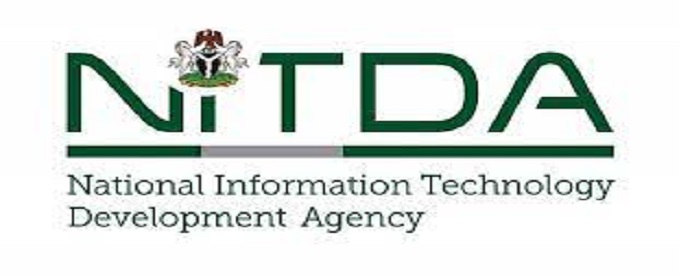Telecom
Putting the Records Straight: NITDA Clarifies Engagement with ASUU’s UTAS Platform

The National Information Technology Development Agency (NITDA) has emphasised that it subjected the University Transparency and Accountability Solution (UTAS) of the Academic Staff Union of Universities (ASUU) to a review to allow for a comprehensive solution that equals standard.

Mrs Hadiza Umar, head, Corporate Affairs and External Relations of the agency, said this on Saturday in a statement issued in Abuja.
Umar said it became necessary for the agency to set the record straight owing to biased information in the public domain about the involvement of NITDA to the solution.
She explained that the Act establishing NITDA mandated it to create a framework for the planning, research, development, standardisation, application, coordination, monitoring, evaluation and regulation of Information Technology (IT) practices in Nigeria.
To that effect, Umar said the agency had over the years, issued series of regulatory instruments, including the Software Testing and Quality Assurance Framework and Guideline issued in 2016.
“This regulatory instrument, currently being reviewed, provides guidelines for the design, development and testing of software projects in Nigeria.
“Furthermore, Section 10 of the Guidelines for Nigerian Content Development in ICT, 2019, provided detailed guidelines and expectations for Indigenous Software Development and Software Enabled Products and Services.
“In line with its mandate, the agency has been registering indigenous software solutions and part of the registration process requires that solutions are subjected to tests in line with the requirements of the Software Testing and Quality Assurance Framework and Guideline, and the Guidelines for Nigerian Content Development in ICT.
“It is common knowledge that ASUU has been engaging the Federal Government on a number of issues including payment of promotion arrears, earned academic allowance, funding for revitalisation of public Universities, and adoption of UTAS as payment platform for universities.
“On the October 14, 2020, NITDA was invited to participate in an interactive session between ASUU, Federal Government and the Legislature to avail ASUU the opportunity to demonstrate the UTAS platform,” Umar said.
According to her, as part of the conditions for acceptance of UTAS as payment platform for public universities by the Federal Government, NITDA was directed to subject the platform to Integrity Test and advise the government appropriately.
She added that the agency conducted three out of eight tests specified in the Software Testing and Quality Assurance Framework and Guideline.
Umar said the tests included User Acceptance Test (UAT), Stress Test, and Vulnerability Assessment and Penetration Test (VAPT).
She added that NITDA met with ASUU on Oct. 22, 2020, to discuss the modalities of the assessment of the solution, which involved the National Universities Commission (NUC) and Office of the Accountant General of the Federation.
“Furthermore, documents necessary for effective planning and execution of the tests were requested.
“Upon receipt of the documents from ASUU as well as access details of the UTAS platform in January, 2021, the agency’s team carried out basic Functionality/User Acceptance Test on the platform.
“As NUC conducted UAT, NITDA felt it can use the report produced by NUC for its report.
“However, upon review, it was observed that the Solution was demonstrated to the Principal Officers in a similar way it was demonstrated at the Accountant General’s Office.
The Agency decided that further UAT be carried out with actual end-users from the University System,” she said.
She explained that arrangements were made and 46 staff members from 28 Federal Universities, mainly from Vice Chancellor’s Office, Human Resources, Accounts and Bursary participated in the UAT that held at the NUC complex on Aug. 10, 2021.
According to her, although the UAT was carried out as planned, challenges were encountered that negatively impacted on the outcome of the assessment.
Umar added that the agency’s team also carried out series of Vulnerability Assessment and Penetration Tests on the UTAS platform, which revealed high risk vulnerabilities that were likely to negatively impact on the platform, if exploited.
“Furthermore, two Low Risk vulnerabilities were identified and all discussed with the ASUU team and a further assessment carried out on the updated version of the Solution revealed that the High Risk Vulnerabilities have been addressed.
“However, one Medium Risk, three Low Risks and 44 Informational Risks were identified and were adequately communicated to the relevant stakeholders including ASUU,” the spokesperson said.
She added that a comprehensive report outlining all the tests carried out and issues identified were submitted to Dr Isa Pantami, the Minister of Communications and Digital Economy, on Dec. 3, 2021, and also to the Chief Conciliator, Dr Chris Ngige, the Minister of Labour and Employment, as well as other stakeholders in ASUU.
Umar recalled that on Feb. 22, 2022, during the conciliation meeting at the instance of Ngige, it was resolved that NITDA worked with ASUU and subject UTAS to re-assessment with key members of the conciliation team in attendance during the Technical Team’s sessions as observers.
“It may interest the agency’s stakeholders to know that NITDA, as a responsible agency of government, made all arrangements to ensure that the exercise was carried out successfully.
“The interaction commenced on the March 8, 2022, with discussion on the methodology to be used as specified in the Software Testing and Quality Assurance Framework and Guideline.
“Upon reaching agreement and starting the actual test on the Solution, a critical error occurred and the test could not continue and as a result, the interaction had to be postponed to enable the ASUU Team rectify the issue.
“Considering the challenge encountered, the assessment methodology had to be reviewed to facilitate daily remediation of critical issues as they occur which is against NITDA’s Standard Operating Procedure for such exercises,” she said.
She recognised the attention of stakeholders and the general public to the need for the UTAS platform to be sufficiently robust with key functionalities implemented before being deployed to the production environment.
Umar reiterated that the solution as currently implemented was limited, adding that there are critical functionalities that needed to be implemented, tested and passed before the Solution could be considered to meet NITDA’s due diligent requirements.
“These areas of improvement have been fully documented and shared with the ASUU team for necessary action.
“It is expected that ASUU will improve on the areas identified, work on the security issues flagged and resubmit the Solution for further assessment.
“The agency wish to use this opportunity to assure stakeholders and the general public of its commitment to its mandate and the vision of proactively facilitating the development of Nigeria into a sustainable digital economy by creating an enabling environment where Nigerians develop, adopt and derive value from digital technology,” the statement read in part.
Telecom
MTN’s Karl Toriola and Business Leaders Champion Corporate Climate Reform

In a defining step toward sustainable transformation, Nigeria has officially joined the global Climate Governance Initiative (CGI), a platform empowering corporate board members to take decisive climate action.

Evoto
The initiative’s virtual launch drew a dynamic mix of leaders—former ambassadors, government officials, business executives, and climate advocates from across Africa and beyond.
Dr. Myma Belo-Osagie, Chair of the CGI Nigeria Advisory Board, welcomed attendees with a call to reimagine corporate leadership: climate risks, she noted, should no longer be treated as external issues—they must be integrated into strategic decision-making. She pointed to green finance, regenerative agriculture, and circular business models as key areas of opportunity.
Echoing that sentiment, MTN Nigeria CEO, Dr. Karl Toriola, warned that climate challenges already influence everything from access to capital to long-term competitiveness. “Climate risk directly affects our bottom line. It’s no longer optional to care—it’s necessary,” he said.
Toriola detailed how MTN has embedded climate governance at the core of its operations. From energy-efficient innovations like solar-powered towers and motion-sensor lighting to a nationwide battery and device recycling program, MTN is actively reducing its environmental footprint. Crucially, all executive performance indicators now include sustainability goals—with incentives tied to measurable impact.
He didn’t shy away from the hard truth: genuine climate progress will require sacrifice. “You can’t make an omelet without breaking eggs,” he said, urging corporate leaders to prioritize climate resilience even when it’s inconvenient or costly.
As CGI Nigeria joins a growing global network of corporate climate advocates, the message is clear—business leadership must go beyond profit to steward environmental accountability. From the boardroom to rural infrastructure, Nigeria’s private sector has a pivotal role in shaping a more sustainable future.
Telecom
Save & Win: FCMB Promo Makes 12 Millionaires, Over 3,000 Winners

First City Monument Bank (FCMB) has rewarded 3,016 customers in Season 10 of its ongoing Millionaire Promo. So far, 12 customers have won the top prize of ₦1 million each, while 3,004 others have received different cash rewards.

The winners were selected through electronic draws held between January and June, ensuring broad participation. The promo is open to new and existing savings account holders and ends in September.
During the fifth draw held on June 17, four additional customers won the star prize of ₦1 million each, with 112 others also receiving cash prizes. The latest millionaires include Ranti Badmos from Lagos, Wilson Onoezikome in Kaduna, Esther Obafemi in Ijebu-Ode, Ogun State, and Israel Oruma in Asaba, Delta State.
Israel Oruma, a timber merchant, expressed his delight at winning, saying the prize would significantly support his business.
“This is a pleasant surprise. I have been facing financial challenges recently. The ₦1 million will go a long way in assisting me. I’m investing it in my business and will encourage all my staff, family, and friends to open an account with the Bank. Thank you, FCMB.”
Adetunji Lamidi, Divisional Head of Personal Banking at FCMB, said the Millionaire Promo reflects the bank’s broader mission to enable financial security and opportunity for everyday Nigerians.
“At a time when many are facing economic pressure, savings-driven initiatives like this shift the focus from getting by to making progress. It gives people a reason to save, rewards loyalty, and shows that banking helps create real-life impact.”
Speaking on the integrity of the selection process, Oyinkan Kusamotu, Principal Legal Officer at the Lagos State Lottery and Gaming Authority, stated: “It’s great to witness FCMB’s commitment to compliance, fairness, and transparency throughout the draw process, which builds trust with customers and stakeholders.”
To qualify for Season 10 of the FCMB Millionaire Promo, customers must increase their account balance by at least ₦10,000 and maintain it for 30 days to enter the monthly and seasonal draws. Each additional ₦10,000 saved increases the customer’s chances of winning. Dormant or inactive account holders can also participate by reactivating their accounts. Draws are held nationwide, giving everyone a fair opportunity to win.
Telecom
4 Dead, 20 Others Injured as Fire Engulfs Cairo Data Centre

Four people have been killed, with over 20 injured after a fire at Cairo data centre disrupted telecom services nationwide.

A fire at a major Telecom Egypt facility in Cairo on Monday has left four workers dead and at least 22 others injured, plunging parts of the capital into a communications crisis.
According to Hossam Abdel Ghaffar, spokesperson for Egypt’s Health Ministry, most injuries were due to smoke inhalation.
The blaze, which broke out at a key data centre operated by Telecom Egypt, the country’s primary fixed-line and internet provider, was brought under control later that day.
However, it caused widespread disruptions, halting phone services, affecting internet connectivity, and even interfering with digital banking operations.
Internet monitoring group NetBlocks reported that national connectivity dropped to just 62% of normal levels following the incident.
Residents across Cairo struggled with poor network access, and banks—although already closed for the day—reported interruptions in ATM services and online transactions.
In a statement on Tuesday, Telecom Egypt mourned the loss of its employees and pledged support to their families.
Amr Talaat, Egypt’s minister of Communications and Information Technology, assured the public that service restoration was underway and expected to be completed within 24 hours.
To address the disruption, the Health Ministry released alternative emergency contact numbers across Egypt’s governorates, in case its primary ambulance hotline remained unreachable.
The state-run MENA news agency reported that the fire was prevented from engulfing the entire building and nearby rooftops, thanks to the efforts of emergency responders.
A preliminary investigation suggests the fire was likely triggered by an electrical short circuit, according to a security source cited by MENA.
As the nation works to restore full connectivity, the incident has raised fresh concerns about the vulnerability of critical infrastructure and the need for enhanced fire safety protocols in sensitive tech facilities.

 Telecom2 days ago
Telecom2 days agoNCC Wins Global ICT Award for Digital Awareness in Schools

 Broadcasting2 days ago
Broadcasting2 days agoMore Woes for MultiChoice as Ghana Orders 30% Price Cut

 News2 days ago
News2 days agoNnamani, CEO Digital Realty Nigeria Bags Digital Economy Icon of the Year @ Digital Innovation Awards in Ghana

 News2 days ago
News2 days agoFG Says No Going Back to Nuclear Testing

 E-Financial2 days ago
E-Financial2 days agoAscensia Finance Commences Operations in Abuja

 News2 days ago
News2 days agoDICON, Saudi Firm to Produce Drones, Satellites in Nigeria

 News2 days ago
News2 days agoNIPOST to Crack Down on Criminal Courier Operators

 Telecom2 days ago
Telecom2 days agoNCC to Chart MVNO Growth Path at Telecom Sustainability Forum 6.0



























